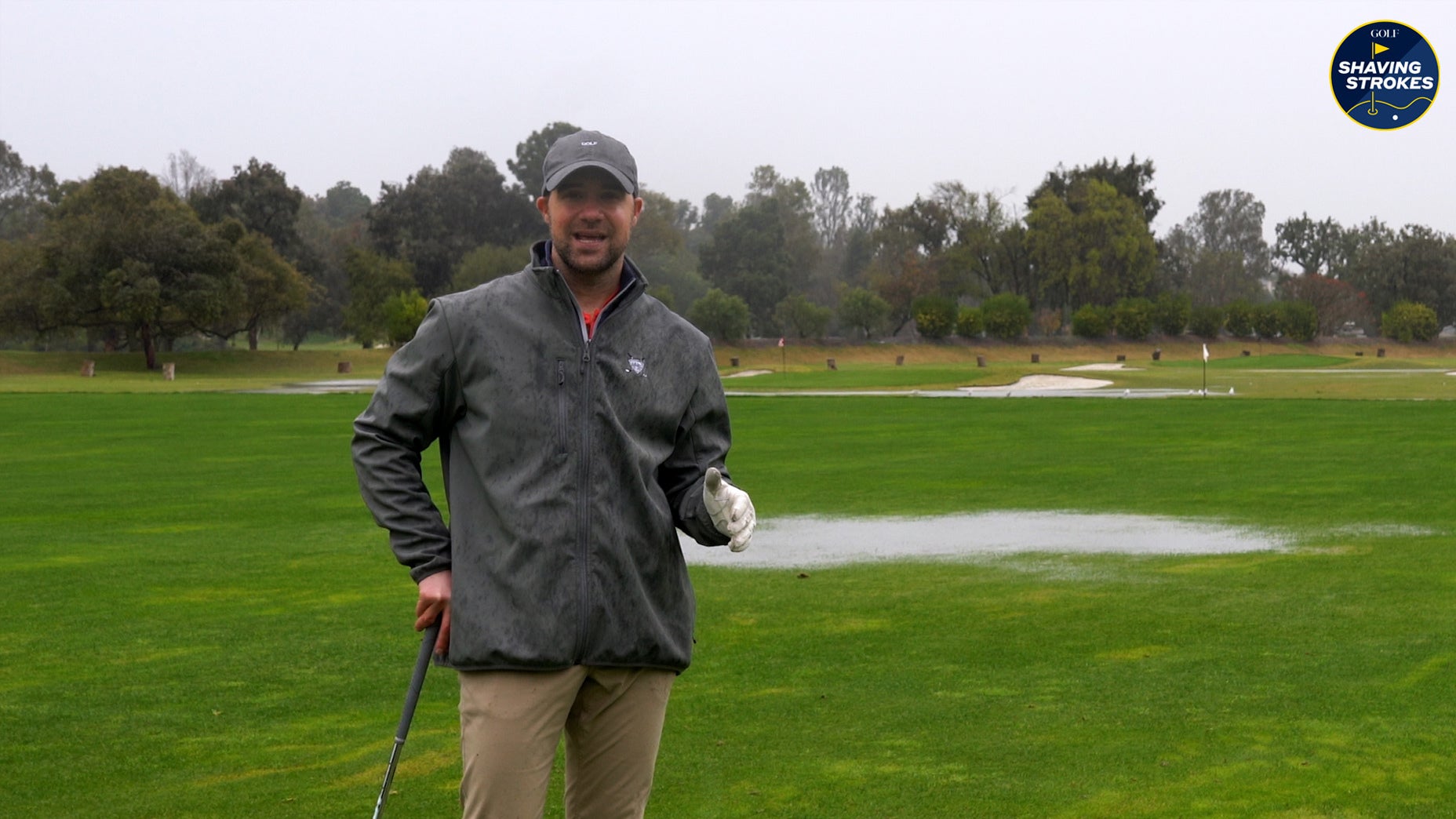Welcome to Shaving Strokes, a GOLF.com series in which we’re sharing improvements, learnings and takeaways from amateur golfers just like you — including some of the speed bumps and challenges they faced along the way.
We all prefer playing golf beneath sunshine and blue skies, where the temperature hovers between about 68-73 degrees and the course plays fast and fun.
Unfortunately, we know that’s not always going to be the case.
As someone who lives in Seattle, you better believe I’ve become accustomed to playing golf in the rain — especially this time of year, when the weather can’t quite make up its mind whether to stay gray and wet or go full-blown spring. There’s a good chance you live somewhere similar.
But playing golf in the rain presents challenges that don’t exist on dry days — which can lead to frustration and higher scores.
From understanding how to choose your proper club to knowing the best way to make solid contact on soggy grass, I’ve experienced all sorts of headaches during early-season golf rounds.
It doesn’t have to be that way, though, and the video below shares some tips on how to perform your best despite rainy conditions.
How to survive a round of golf in the rain
So how can you salvage a soggy round and actually hit good shots? I reached out to GOLF Top 100 Teacher Tony Ruggiero to provide some tips. So take a look at the video above (and the text below) to see what Ruggiero says is a must for any golfer braving rainy elements.
1. Embrace the elements
As mentioned above, we’d all prefer to play golf when the weather is perfect — but Mother Nature doesn’t always necessarily cooperate with our wants. That’s why Ruggiero says the first thing every golfer needs to do is simply embrace the conditions and avoid using the rain as an excuse.
Remember, you’re not the only player dealing with soggy conditions, but you can control your attitude towards the poor weather — which can give you an edge over anyone else in your group.
2. Always club up
This is something I had to learn the hard way during rainy rounds in Seattle, as I often used to default to using the same club regardless of temperature or course conditions.
But in the video above, I demonstrate how different clubs can translate to more effective shots, as I hit a 7-iron first (which results in a high ball-flight that can get caught in any breeze), and then a 6-iron (which produces a lower trajectory more suitable for wetter course conditions).
While the ball won’t get much roll on soggy grass, a lower ball flight gives you more control of the shot. Plus, it’s less likely to plug upon landing!
3. Take practice swings next to the ball
Despite the ground being wet, you still need to make sure you engage the low point of the club with the turf.
To help familiarize with how soft the ground is and where your club should interact with the grass, Ruggiero suggests taking practice swings next to your ball prior to address. By doing this, you’ll get an understanding of how much water surrounds your ball, how hard you need to swing to get the club through the turf, and a general idea of the shot in front of you.
4. Stabilize your lower body and shorten your swing
Every good golfer uses their feet in the golf swing — and doing so in wet conditions should be no different. However, because the grass can be soggy, there’s an increased risk of your feet sliding underneath you.
To take control of your shot and help eliminate that risk, Ruggiero says stabilizing your lower body will help. This also means shortening your swing a bit, which may include clubbing up again depending on how wet the ground is.
In the video, I ended up going from a 7-iron all the way to a 5-iron after using some of Ruggiero’s tips.
While we all hope that springlike weather is near, you never know when Mother Nature might decide to rear her ugly head during a round. So instead of getting upset, use the above tips play golf in the rain with success.
